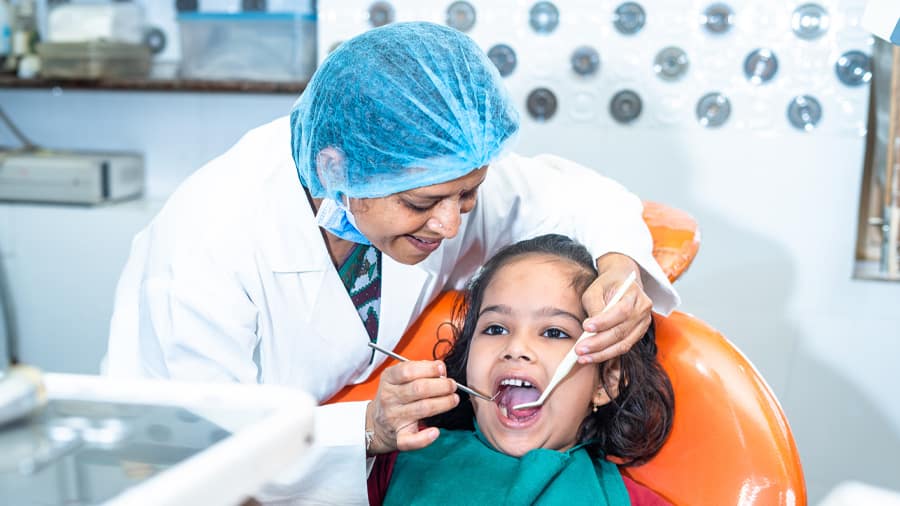Comprehensive Children Dentistry Oakland for Healthy Smiles
Comprehensive Children Dentistry Oakland for Healthy Smiles
Blog Article
Pediatric Dental Emergencies: What Parents Need to Know for Quick and Effective Treatment
In the world of pediatric healthcare, oral emergency situations can occur all of a sudden, leaving parents not sure of exactly how to take care of the circumstance effectively. Recognizing the indicators, sorts of injuries, and prompt actions to take can make a considerable difference in the outcome for a child's oral health. With a fast and appropriate response, moms and dads can minimize possible long-term effects and ensure their kid receives the necessary treatment promptly. By being prepared and notified, parents can play an important duty in securing their child's dental well-being.
Indicators of Pediatric Dental Emergencies
When assessing pediatric dental emergencies, it is vital for moms and dads to be vigilant for specific indications indicating potential major problems. Among the primary indicators of an oral emergency in kids is persistent tooth discomfort that is not eased by non-prescription pain medicines. This can suggest a hidden infection or damages that needs instant attention from a dental expert. Swelling in the periodontals, face, or jaw area is one more warning that ought to not be neglected, as maybe a sign of an abscess or various other severe dental problem.

Typical Kinds Of Oral Injuries
Usual types of oral injuries in kids frequently result from crashes or sports-related tasks that can bring about different kinds of trauma to the mouth and teeth. One typical dental injury is a fractured tooth, which can vary from a minor chip to a more extreme break including the inner layers of the tooth. An additional regular injury is a knocked-out tooth, where immediate activity is important to enhance the opportunities of conserving the tooth. Children might also experience oral injuries like tooth invasion, where the tooth is pressed into the jawbone, or avulsion, which is the complete variation of a tooth from its socket. In addition, dental injuries can consist of luxation, where the tooth is displaced however not entirely knocked out, or soft cells injuries to the periodontals, lips, or tongue. It is necessary for parents to be familiar with these common sorts of dental injuries to provide punctual and proper treatment in situation of emergency situations.
Immediate First Help Measures
Upon coming across a pediatric oral emergency situation, swift and suitable emergency treatment actions are vital to reduce pain and protect against further problems. For a knocked-out tooth, advise the youngster to carefully wash the tooth with water, trying not to touch the root, and location it back in the outlet ideally. If re-implantation is not viable, save the in network dentist tooth in a container of milk or the child's saliva up until getting to the dental expert. In instances of a damaged or chipped tooth, wash the mouth with warm water and use a cold compress to lower swelling. A bitten lip or tongue must be cleaned up carefully with water, and a chilly compress can aid reduce pain and minimize swelling. For items stuck between teeth, prevent making use of sharp tools and instead urge the youngster to gently floss to remove the item. In all circumstances, it is crucial to speak to a pediatric dental practitioner immediately for additional assessment and therapy.
When to Look For Expert Help
Seeking punctual dental treatment from a pediatric specialist is important in resolving possible complications occurring from pediatric dental emergency situations. Parents ought to look for expert help quickly if their kid experiences serious tooth pain, face swelling, bleeding that does not stop, a knocked-out irreversible tooth, or any trauma to the mouth or see it here face. These signs suggest a significant oral concern that calls for prompt interest from a pediatric dental practitioner.
Additionally, if a kid complains of persistent tooth sensitivity to warm or cold, problem eating or swallowing, or indicators of infection such as pus around the periodontals, parents need to not delay in seeking professional oral treatment. These symptoms could show underlying oral issues that require to be attended to promptly to avoid more issues.
In situations of dental emergency situations, it is important for moms and dads to speak to a pediatric dentist as soon as possible to make certain correct medical diagnosis and therapy - kid dentist near me. Postponing expert aid can bring about exacerbated dental problems and prolonged discomfort for the youngster

Stopping Future Oral Emergency Situations
To lower the chance of future oral emergencies, parents must prioritize constant dental hygiene techniques and regular check outs to a pediatric dental expert for precautionary care. Motivating kids to comb their teeth two times a day with fluoride toothpaste and teaching them the proper redirected here method for 2 minutes each time can considerably lower the danger of oral issues. Flossing day-to-day is also important to remove plaque and food bits between teeth, where a tooth brush can not reach. In addition, restricting sugary snacks and drinks can help protect against tooth decay and cavities.
Normal brows through to a pediatric dentist for exams and cleanings are important for very early detection of any possible oral issues. These appointments permit the dental practitioner to keep an eye on the youngster's dental wellness, supply professional cleanings to get rid of plaque and tartar buildup, apply fluoride treatments for added protection, and deal assistance on proper oral care strategies.
Conclusion
To conclude, parents should understand the indicators of pediatric oral emergency situations, usual types of oral injuries, prompt very first help steps, and when to look for expert help. By taking aggressive steps to avoid future oral emergency situations, parents can guarantee fast and effective therapy for their kids. It is essential to remain notified and prepared in order to manage any type of dental emergency situation that may develop.
Report this page